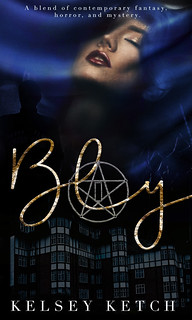An Interview with Deborah Challinor on her book Isle of Tears.
Famous NZ Historical Author Deborah Challinor and her novel Isle of Tears, which explores the Maori and Pakeha Land
Wars – seen through the eyes of the Maori perspective. She chats about her writing and background..


What is the inspiration behind the book Isle of Tears?
I decided to tell the story through Isla’s eyes as she quotes “I don’t believe that I have the cultural capital to accurately portray the New Zealand Wars from a purely Maori perspective”. By using Pakeha-Maori characters it meant that I could observe the war from both points of view, but with an emphasis on the Kingite experiences (supporters of the Maori King). I also wanted to try and convey what it might have been like for the Maori to be faced with the loss of their land and consequently their economic and spiritual resources, mana etc. And to have to go along to war for so long and at such costs they had to risk.
You have always written historical fiction/non-fiction; do you have a background in History and/or writing?
I received and did my PhD in History at the University of Waikato. I got into writing with my first book Grey Ghosts: New Zealand Vietnam vets talk about their war, which was actually based on my PhD thesis which I finished in 1998. My academic supervisor suggested that I send out a couple of chapters out to publishers, which I did, and I was offered a contract by HodderMoaBeckett Publishers. Harper Collins Publishers then contacted me to write another non-fiction book about the Vietnam War Who’ll stop the rain: Agent Orange and the children of New Zealand‘s Vietnam veterans, which was released in 2000. Then it was suggested that I have a go at some fiction: I did, and that turned out to be my first novel, Tamar. I’ve been writing for Harper Collins NZ since then.
All you’re books are based loosely on a historical event in New Zealand, how do you choose which event to use?
I choose any historical subject that interests me, usually one that has had a significant impact on New Zealand’s development as a nation and our society, then research it and add fictional characters to bring the story to life.
Who are your Role Models in life and why?
I don’t think I really have any role models. But I do admire Helen Mirren for being such an excellent and gorgeous actress in her sixties, Marianne Faithfull for overcoming her drug addictions and forging a career for herself as a singer, and the writer Marian Keyes for talking so openly about her alcoholism.
What would be your favourite pieces of advice for would-be writers and in general?
Would-Be-writers: read loads of all sorts of different books, keep writing, and keep submitting to publishers in New Zealand and overseas, but hang on to your day job.
General: Be who you are – it’s always enough.


What is the inspiration behind the book Isle of Tears?
I decided to tell the story through Isla’s eyes as she quotes “I don’t believe that I have the cultural capital to accurately portray the New Zealand Wars from a purely Maori perspective”. By using Pakeha-Maori characters it meant that I could observe the war from both points of view, but with an emphasis on the Kingite experiences (supporters of the Maori King). I also wanted to try and convey what it might have been like for the Maori to be faced with the loss of their land and consequently their economic and spiritual resources, mana etc. And to have to go along to war for so long and at such costs they had to risk.
You have always written historical fiction/non-fiction; do you have a background in History and/or writing?
I received and did my PhD in History at the University of Waikato. I got into writing with my first book Grey Ghosts: New Zealand Vietnam vets talk about their war, which was actually based on my PhD thesis which I finished in 1998. My academic supervisor suggested that I send out a couple of chapters out to publishers, which I did, and I was offered a contract by HodderMoaBeckett Publishers. Harper Collins Publishers then contacted me to write another non-fiction book about the Vietnam War Who’ll stop the rain: Agent Orange and the children of New Zealand‘s Vietnam veterans, which was released in 2000. Then it was suggested that I have a go at some fiction: I did, and that turned out to be my first novel, Tamar. I’ve been writing for Harper Collins NZ since then.
All you’re books are based loosely on a historical event in New Zealand, how do you choose which event to use?
I choose any historical subject that interests me, usually one that has had a significant impact on New Zealand’s development as a nation and our society, then research it and add fictional characters to bring the story to life.
Who are your Role Models in life and why?
I don’t think I really have any role models. But I do admire Helen Mirren for being such an excellent and gorgeous actress in her sixties, Marianne Faithfull for overcoming her drug addictions and forging a career for herself as a singer, and the writer Marian Keyes for talking so openly about her alcoholism.
What would be your favourite pieces of advice for would-be writers and in general?
Would-Be-writers: read loads of all sorts of different books, keep writing, and keep submitting to publishers in New Zealand and overseas, but hang on to your day job.
General: Be who you are – it’s always enough.




Comments
Post a Comment